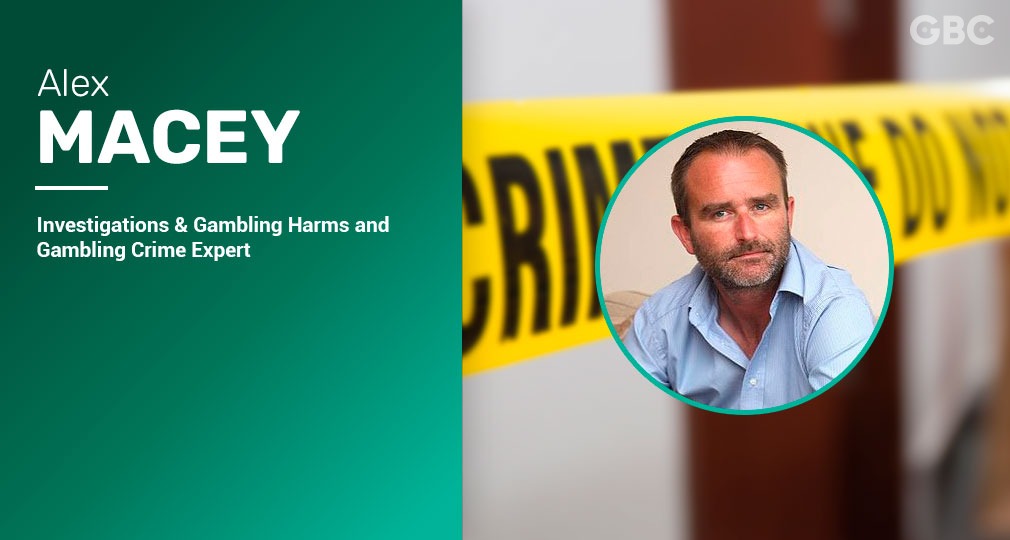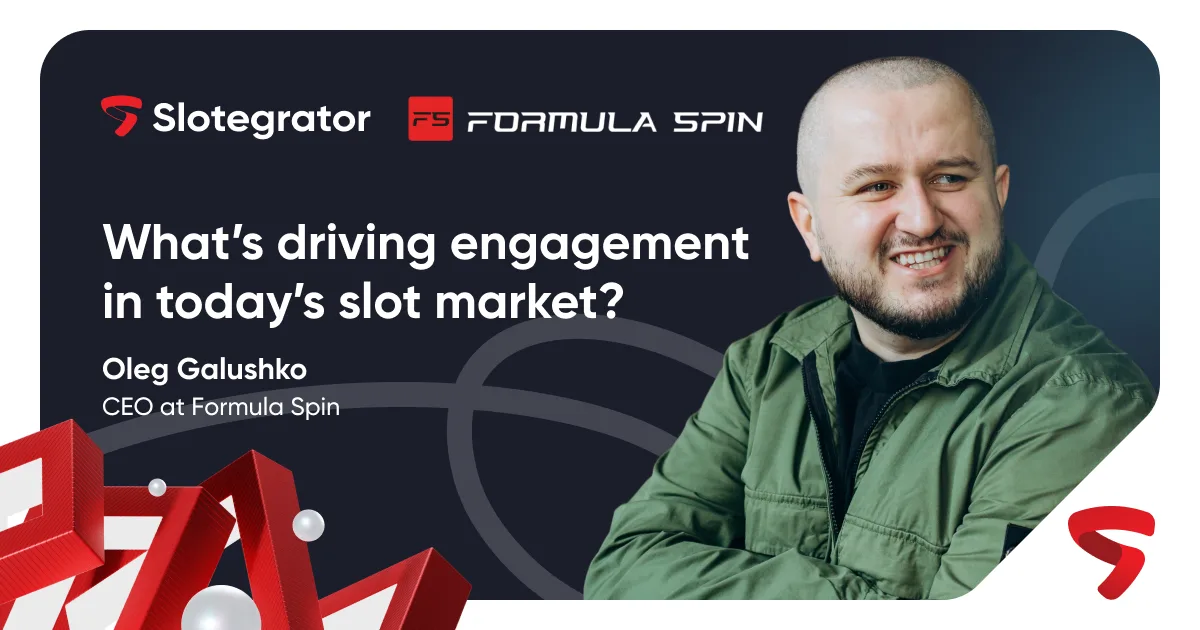In a compelling and insightful interview, we sit down with Alex Macey, a distinguished expert in investigations, gambling harms, and gambling crime. With a career dedicated to combating the dark underbelly of the gambling industry, Macey has become an invaluable ally for stakeholders working tirelessly to prevent and detect gambling-related criminality.
His expertise sheds light on the intricate world of gambling harms and the vital role of investigation in safeguarding both individuals and the integrity of the industry itself. In this exclusive conversation, Macey shares his profound insights, strategies, and experiences in the ongoing battle against the perils of gambling-related crime.
The landscape of gambling is evolving with the emergence of online platforms and new technologies. How has this shift impacted the nature and prevalence of gambling-related criminality? What strategies have you employed to keep up with these changes?
Without a doubt, the ability to gamble 24 hours a day has increased the propensity to commit crimes to fuel disordered gambling. If we all had the Las Vegas strip on our doorsteps, people would be inclined to gamble more. Essentially, everyone now has the equivalent of the Las Vegas strip on their phones and laptops.
The number of reported media cases here in the UK of crimes committed by disordered gamblers has increased exponentially since around 2017. We will see this happen in the USA as they’ve opened their doors to online gambling. I predict a level of chaos there that will surpass the UK’s failures ten-fold.
I came to the early conclusion that the only way to mitigate against the increasing numbers that commit crimes, particularly online, is by being robust in compliance with well-established rules and laws that exist. Unfortunately, when you have a regulator(s) that just regurgitates the same old rhetoric year after year you’ll never get to the root of the problems. That’s why I have had to find ways of bypassing the regulator(s) and going to the heart of the mechanisms that have the ability to resolve these issues.
That in essence, is stripping things back to their basics and looking at the laws and legislations that exist and making sure they’re implemented effectively. There is no scope anymore to ignore this growing problem because some day in the not-too-distant future we will see an executive of a gambling company being summoned to court. That may well also be true for the regulator. I think this is the only way to force meaningful change.
Can you discuss an instance where your expertise led to the identification and mitigation of a gambling-related crime that might have gone undetected without your involvement?
The cases I have been involved in have predominantly been those when the crimes have already been committed. What gambling companies need to understand is that it is very much in their interests to work on ways that can thwart, say a million-pound crime for example, to one of a significantly smaller sum. Here in the UK, we are close to having a new act implemented, the Economic Crime Bill. This opens the door up for allowing companies to share data to stop criminality. It might take a little getting used to because it’s almost a complete reversal of GDPR laws.
It therefore makes complete sense for the industry to first implement an across-the-board process of dealing with cases of criminality or suspected criminality. This then firstly allows for lessons to be learned and for the industry to fully understand the extent of the issue. From that point, you can then collectively move forward together and implement policies that can stop such criminality from happening in your business. The ones who want to be lone wolfs will be the ones that attract and exacerbate this custom.
I am currently working with some companies that really want to get on top of the issue and are very much open to these ideas. Dealing with crime is not a matter of gaining a leg up over a competitor, it’s quite the opposite. The new data-sharing legislation should be embraced with the assistance of skills, expertise, and knowledge to organize and streamline this process.
Legislation around gambling varies across different jurisdictions. How do you navigate the legal nuances and ensure your investigations and preventative measures align with the laws in each relevant area?
I’ve often heard from my many gambling industry friends/executives that it’s somewhat of a challenge to navigate the different expectations from regulators spanning across many countries and jurisdictions. Whilst I completely get that certain regulators change the goalposts at the drop of a hat, my response is simple; get the basics right and the rest will follow. The basics which are mainly standard in the developed world center around AML laws.
Many people don’t have a level of understanding around AML laws, probably because they think it’s a complex subject. It isn’t. Implementing these basics, such as the ongoing monitoring of a customer and source of wealth checks will take a whole lot of the problems that exist away. Some seem to think that Source of Wealth checks are something new and something invasive. They are wrong on both counts because AML laws have been around for some time and have quickly adapted to the emergence of challenges that the online world brings.
I have the unique expertise and experiences to be able to help with this. I was, after all, a disordered gambler for the majority of my adult life whilst navigating being a detective in the police. Having come away from my destructive gambling and investigating the whole industry as in the laws, rules, how companies act when faced with cases of extreme spending by disordered gamblers, I’ve come to realize it’s the same failures repeated over and over again. Whether it’s via criminality or people racking up debt and losing their homes should not be seen as two different things. Committing crime is wrong but if you’re complicit by not making sure you’ve followed the rules, then the new Financial Crime Bill may well force you to wake up and take the matter more seriously.
Psychological factors often play a significant role in both gambling behavior and its potential criminal outcomes. How do you incorporate insights from psychology into your work to better understand and address these issues?
Gambling Disorder is a complex beast. It took me a solid two years to feel like I was free from the main psychological effects of it. I am not a qualified medical professional but having come through the journey myself many years back, I am able to see many parallels between how my life was back then and seeing how others coming to terms with the realities of the destruction caused in their lives.
One of the biggest things with gambling disorder that is so often overlooked by some medical experts in this field, is that gambling disorder is mainly a symptom of other illnesses. The same is true for most addictions and if you don’t get to the root causes of the disorder then it’s unlikely that someone can get some semblance of psychological peace.
I can attest to this because, whilst in some ways I was fortunate that the police supported me when I had to confront my gambling and other associated symptoms, I was also unfortunate. I was unfortunate because most of the medical experts actually made my condition(s) worse. That’s because they had no understanding of the complexity of gambling disorder and how it’s linked to other mental illnesses. When I look back now, it’s no coincidence that on a few occasions after meeting some of these psychologists/psychiatrists/consultants, that I actually immediately gambled in a destructive way.
I had to figure most of it out myself but for many that’s just impossible to achieve. It’s therefore such a difficult question to answer because if the medical professionals don’t get it right, it leaves the person feeling even more empty and makes them worse. There is hope, however. If you look at the work that Kindbridge is doing, for example, they’ve got the right professionals there are they’re able to screen people that have asked for help and get them to the niche treatment they specifically need. Had I been able to turn to such help, I believe many of my own problems would have been addressed much sooner.
As the gambling landscape continues to evolve, data analytics and technology play a pivotal role. How do you leverage these tools to enhance your investigative and preventative capabilities?
We live in such a data-driven world now that there’s just no excuse to not be able to tackle problems in the same manner in which a company uses data to increase its market caps. So aside from having to trawl through reams of data when investigating what went on, the evidence is there on a plate, it’s black and white and cannot be argued against. If the ‘old school’ mentality exists of thinking that it’s OK to extract as much money as possible from people and blame them for gambling more than they can afford, rather than looking at what they could have done to better protect both the individual and the good name of their business, then that’s going to now end up badly for them.
Prevention comes by first looking at what went wrong in the past; secondly, by having the insights of a disordered gambler and thirdly by having the skills to investigate and join up these key components. Again, if that’s done across the board in a standardized way, everyone will benefit. If people have a quick glance at Gambling Disorder, you’ll see there are nine strands to it. Pretty much all of those strands can be cross-referenced to the data harnessed from a player. I have some very simple policies that could be implemented quickly, effectively, and at little cost that will not only help identify potential disordered gamblers early but also mitigate the risks to the company.
I’ve always said that it’s in the companies’ interests to get on top of the issue before the regulator(s) finally wakes up. Rest assured, the regulator will throw you under the bus at some point when the politics change.
The financial aspect of gambling-related crime can be intricate, involving money laundering and illicit transactions. How do you trace and uncover these financial flows, especially in the digital age where transactions can be more discreet?
We have to strip this into a couple of areas:
The first is serious and organized criminality and politically exposed people. I’m going to leave out crypto gambling, mainly because transaction tracing is much harder with the anonymity of the blockchain. But again, we just have to go back to basics. If someone is transacting large sums then get the proof of the SOW early. Let’s say you’ve got a rich celebrity on your books, for example, you shouldn’t just assume that the person can afford their level of gambling. Someone’s £10k bet can be the equivalent to another’s £10 bet, in terms of affordability and destructive outcomes.
I think companies often feel that it’s not their place to get the basic evidence from their customers when it comes to affordability and in all of the cases I’ve seen, these questions always come too late. Having a good investigatory background makes it much simpler to unpick the sources of criminality. If you have the abilities and experiences to know how a criminal’s mind works in conjunction with how a disordered gambler’s mind works, then you’ll always manage to catch up with them before too much harm has been done.
Submit the Suspicious Activity Reports, suspend accounts, request evidence to do your bit, and then you can put the onus on other law enforcement units to do the rest.
How do you balance your efforts between reviewing criminal cases and providing assistance to those who might be victims of gambling harms?
This can be a tricky one. As I’ve already mentioned, people that have finally been forced to confront their crimes by having the police catch up with them, are normally at the lowest point in their lives. What I’ve always done is take the burden of the investigation away from them and communicate with the relevant parties on their behalf. Together with this I always try and encourage them to utilize the specialist NHS gambling clinics, which are growing in numbers here in the UK and will hopefully be similarly replicated elsewhere.
Some people think it’s a simple case of ‘they’ve committed a crime so throw the book at them’. For organized criminality, I absolutely agree. But the overwhelming majority of offenders are professional people with high-up jobs. Accountants, CFOs you name it. They’re nearly always first-time offenders. Also, and this is important to those people who say they should be locked up and paid for their crimes, they (almost) always admit their wrongdoings. It’s only at the relevant point in time when I make them aware of the bigger picture that they’re able to forgive themselves. It can also bring some anger, as indeed it did for me when you realize that companies have flouted laws and rules to extract every last penny from someone.
I have many good friends in the gambling industry who are passionate about making sure their companies strive to balance profit goals against customer protection and their welfare needs. Lots of great things are being done and I certainly don’t want to come across as anti-industry because I definitely am not. For some time now I have understood that the core of most problems that exist here in the UK are because we have an ineffective regulator. That’s why I’ve gone to the heart of the Criminal Justice System to get things changed. And my message to the gambling industry is that when these changes occur, there will be implications so it’s very much in their own interests to get ahead of the game.
The most severe of consequences, in order of importance, is failures can lead to suicides and failures can now lead to executives appearing in the dock themselves. The first issue is reason enough to get things right because it’s a proven fact that disordered gamblers are much more likely to commit suicide than the general population.
Gone are the days of shutting the stable door after the horse has bolted and being able to sweep matters under the carpet, often with the permissiveness of a regulator. Courts will have access to all the available material. That material has to be owned. A scrutiny on decisions made/not made and personal accountability is here and once it arrives, it never goes away.












